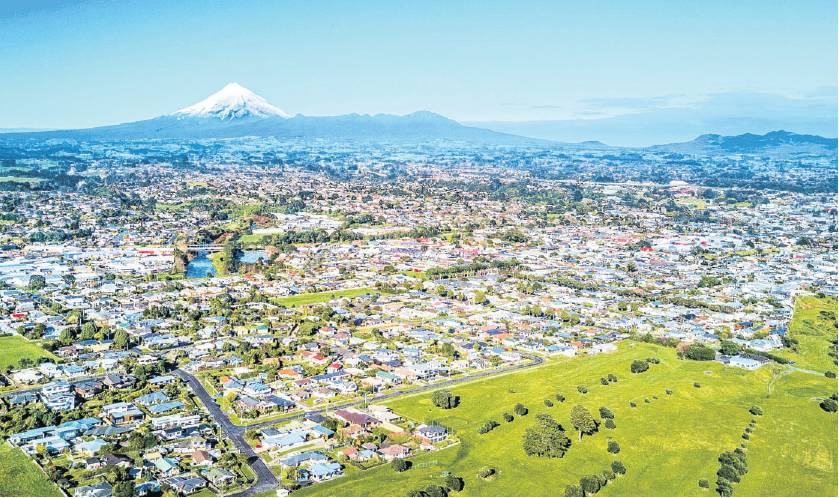
I would like to respond to Kim Cope Tait’s challenge (ODT, 13.4.21) and say that as a New Zealand-born non-Maori I do identify with my own tribes, both here in New Zealand and back in Scotland-England and Jersey Island. All my ancestors arrived here during the 1800s but although I don’t have a marae to physically visit, it doesn’t mean my tribes are insignificant or defunct.
I agree with Philip Temple (ODT, 8.4.21) that getting stuck in the colonisation narrative is dangerous for New Zealand. It was the consequences of the Industrial Revolution and globalisation that brought my ancestors to New Zealand. Our history is clearly extremely diverse and part of the global narrative, and yet there is little public discussion on so much of this rich, multilayered past.
Telling all sides of the story is imperative, and even more so as the Government prepares to launch the new curriculum of New Zealand history in schools next year - “Maori history is the foundational and continuous history of Aotearoa New Zealand.”
Philip Temple refers to non-Maori as being “other” in the history of New Zealand. I wonder how many Maori don’t also have “other” ancestry.
In 2023 it will be the 200th anniversary of the arrival of my great-great-grandfather, the Rev Henry Williams, ‘‘Te Wiremu’’, who became the leader of the Church Missionary Society (CMS) in New Zealand.
Like Maori, he and his family crossed the oceans to reach here and settled on a beach in the Far North, reliant solely on natural resources to feed his family. The closest shop was in Sydney.
Among other things, he has been accused of deliberately translating the Treaty of Waitangi incorrectly. It is a damning accusation but one that I have spent much of my life researching as to its veracity. This research has only led to more questions - the largest being: “Why are some basic facts of New Zealand history so absent from the general narrative?”
For example, the Whig British government, backed by the CMS, sent the Treaty of Waitangi out to New Zealand in a last-minute attempt to stop the Tory-backed private New Zealand Company from buying most of New Zealand in 1839. And in 1841 the Tories became the UK government, with serious implications for New Zealand.
Or the stories from 1792 of all-powerful American whaling fleets in New Zealand waters, sending billions of dollars worth of whale oil home to America, the epicentre of the global whaling industry. It was whale oil that illuminated the streets of the Western world and greased the gears of the Industrial Revolution. For 50 years entrepreneurial Maori travelled the world with whalers before the Treaty of Waitangi was even created. Where are their stories?
Or the stories of the missionaries brokering peace between the warring Maori tribes during the disastrous Musket Wars in the 1820s and ’30s?
Where are the stories of thousands of New Zealand non-Maori who had good relationships with Maori during the past two and a-half centuries?
We are years behind the fullness of American colonial historiography. Their history is in some respects similar to ours, but to have open and frank discussions we need to lay all our stories on the table. The early American whaling ships had crews of many nationalities working together; they became the first global industry. New Zealand’s cultural diversity is similar to the old whaling ships.
My great-grandfather, Thomas Coldham Williams, was born in Paihia in 1825. He was called tangata whenua by the local chiefs, Te Koki and his wife Ana Hamu, therefore as direct descendants my family is also tangata whenua. In fact are we not all tangata whenua if we were born here?
Thirty years ago, when I began researching the early Williams family histories using their old letters as my guide, many old Maori elders, men and women, enthusiastically encouraged me to publish the letters detailing life in the Bay of Islands during the tumultuous 1800s. Their enthusiasm was based on the fact these letters also gave an eyewitness account of their Maori ancestors. Their concerns were the young Maori wouldn’t listen to their old stories, preferring to hear the stories of blame coming out of the universities.
Initially, I couldn’t get these original letters published in New Zealand, but had to find an English publisher.
During the 1960s, ’70s and ’80s, my mother Belinda had the rights to these thousands of letters written by her Williams ancestors, all donated to the Auckland Museum Library, and yet as far as we are aware, not one of our leading historians ever went and looked at these primary resources, nor asked for permission to use them in their narratives.
New Zealand, Aotearoa, is a unique yet fragile country, where fairness has been the base of our founding philosophies. Surely, fairness must continue to be at the heart of future communication so we can educate the future generations fairly and honestly with a healthy, collaborative world view. I believe, as a nation and planet, we all have many challenges to face as a direct result of the Industrial Revolution, but we will struggle to do so collectively if we are divided, fed half-facts and endless guilt.
• Caroline Fitzgerald is the author of two historical biographies, Letters from the Bay of Islands and Te Wiremu. She has a master’s in life writing from UEA (UK), and studied for a master’s in science communication (natural history documentary film-making) at Otago University. She lives in Wanaka.
Comments
Great comment. NZ got Chartists, too.
The argument is over whether NZ remains spiritually and culturally colonised.
A welcome opinion piece. The great treasury of NZ family histories, interactions, relationships, exploration, love and loss, with connections to the construction, farming, industrial and commercial evolution of NZ and earlier, back to the arrival of new settlers, are stories so very rich and varied, vibrant and colourful, often full of examples of a more honest diversity than the politically opportunistic variant in use today. There is a tendency to regard the non-indigenous past as somehow solely tainted by a legacy of exploitation, at least that’s what you would be led to believe given the many portrayals of our history presented in our media, and from our various educational institutions. There is a focus on downplaying and belittling European immigrants and their contributions to NZ society, resulting in an undermining of confidence in our sense of home and country. its devious and premeditated. Our collective NZ stories - both historical and contemporary - from all arrivals to this land are all equally important, often incredible stories, involving joy and hardship for all.
Now we know 'the media and various educational institutions' are unpatriotic.










